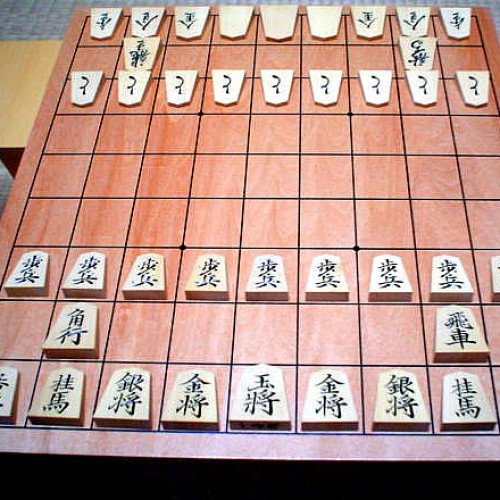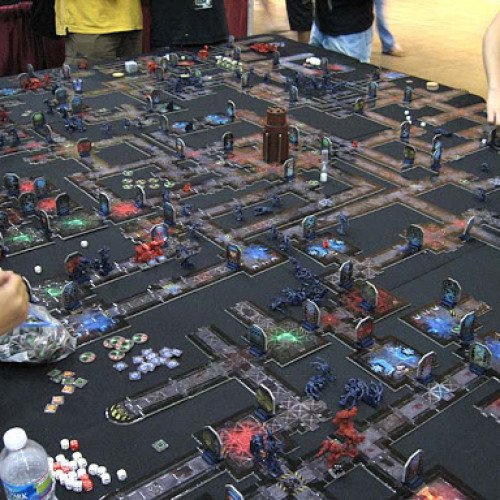SHOGI VS SPACE HULK

SHOGI
Shogi (将棋, shōgi, English: /ˈʃoʊɡiː/, Japanese: , also known as Japanese chess or the Game of Generals, is a two-player strategy board game that is the Japanese variant of chess. It is the most popular chess variant in Japan. Shōgi means general's (shō 将) board game (gi 棋). Shogi was the earliest chess variant to allow captured pieces to be returned to the board by the capturing player. This drop rule is speculated to have been invented in the 15th century and possibly connected to the practice of 15th century mercenaries switching loyalties when captured instead of being killed. The earliest predecessor of the game, chaturanga, originated in India in the 6th century, and the game was likely transmitted to Japan via China or Korea sometime after the Nara period. Shogi in its present form was played as early as the 16th century, while a direct ancestor without the drop rule was recorded from 1210 in a historical document Nichūreki, which is an edited copy of Shōchūreki and Kaichūreki from the late Heian period (c. 1120). Two players face each other across a board composed of rectangles in a grid of 9 ranks (rows, 段) by 9 files (columns, 筋) yielding an 81 square board. In Japanese they are called Sente 先手 (first player) and Gote 後手 (second player), but in English are conventionally referred to as Black and White, with Black the first player. The board is nearly always rectangular, and the rectangles are undifferentiated by marking or color. Pairs of dots mark the players' promotion zones.
Statistics for this Xoptio

SPACE HULK
Space Hulk is a board game for two players by Games Workshop. It was released in 1989. The game is set in the fictional universe of Warhammer 40,000. In the game, a "space hulk" is a mass of ancient, derelict space ships, asteroids, and other assorted space debris. One player takes the role of Space Marine Terminators, superhuman elite soldiers who have been sent to investigate such a space hulk. The other player takes the role of Tyranid Genestealers, an aggressive alien species which have made their home aboard such masses. In Warhammer 40,000, the term "space hulk" is used to refer to any massive derelict space ship. Due to the shifting, immaterial nature of the Warp, an otherworldly realm through which space ships may travel between the stars far quicker than they would be able to through real space, some space hulks are jumbled and twisted agglomerations of multiple vessels lost to the Warp throughout centuries or millennia. Space hulks may house more than just Genestealers; other threats aboard can include human followers of the dark gods of Chaos, nightmarish Warp Daemons, and Orks who use space hulks as their "standard" method of interstellar travel. Genestealers were described in an entry of the "Aliens and monsters" section of the first edition of Warhammer 40,000 (the "WH40K - Rogue Trader" manual), but they were very different from their Space Hulk incarnation, which was more influenced by the xenomorphs depicted in the Alien franchise. Since the 1990s, subsequent games like Warhammer 40,000 and Epic have absorbed them as part of the overall Tyranid army where they serve as the shock troops, although their origins are not related to any other Tyranid broods. A force composed purely of Genestealers can still be fielded as a sub-type of the Tyranid army, in what is known as a Genestealer Cult. The Cult is described in the in-game background as an infiltration force that weakens a target planet, infecting the local population and causing civil unrest in advance of the arrival of the main Tyranid hive fleet.